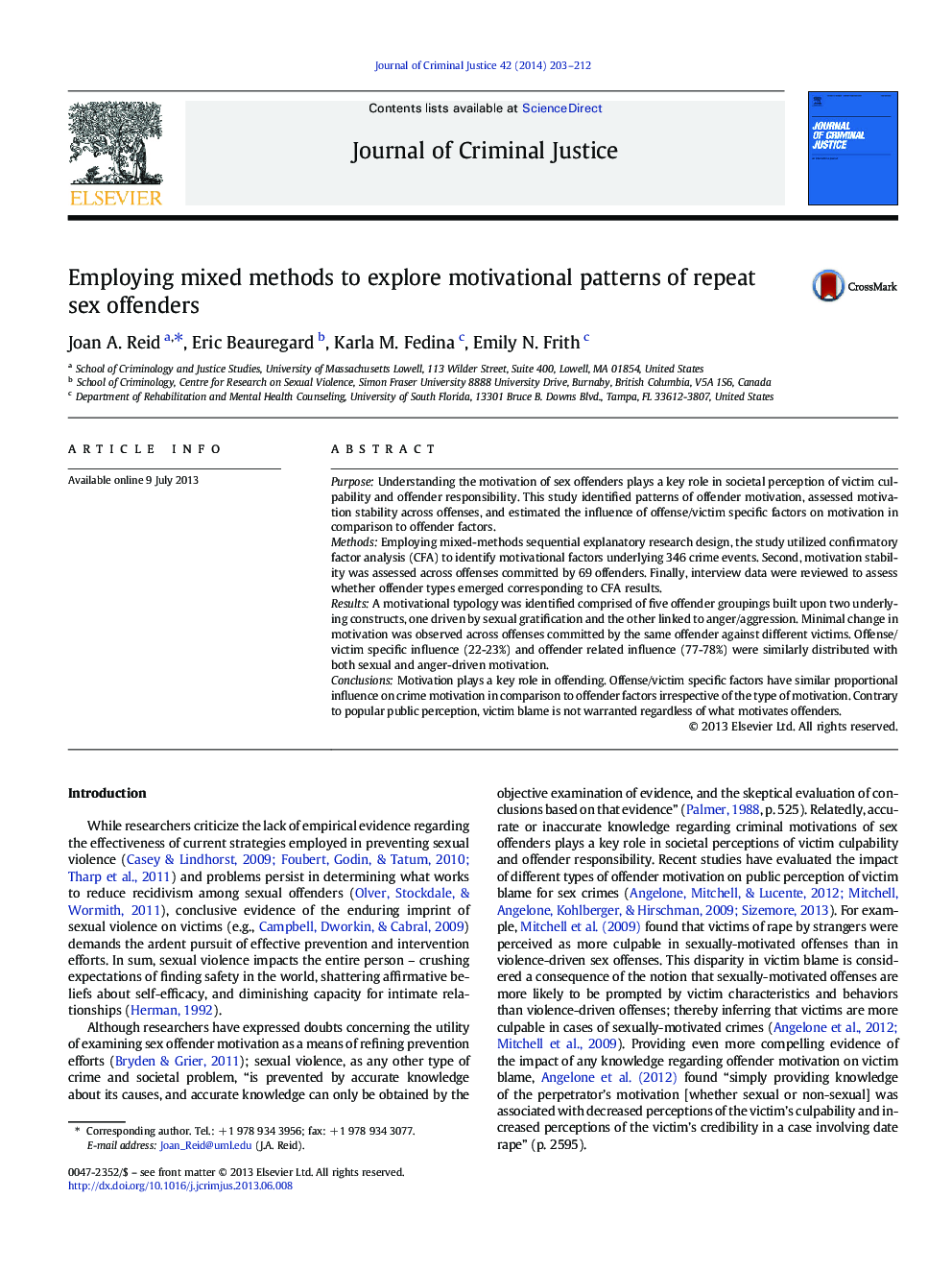| Article ID | Journal | Published Year | Pages | File Type |
|---|---|---|---|---|
| 882812 | Journal of Criminal Justice | 2014 | 10 Pages |
•Identified two motivational constructs underlying sex offenses by repeat offenders•One motivation driven by desire for sexual gratification and one by anger/aggression•Five types of sex offenders emerged from two underlying motivations driving offenses•Stability in motivation observed across sex offenses committed by same offender•Proportional influence of offense/victim specifics did not vary by type of motivation
PurposeUnderstanding the motivation of sex offenders plays a key role in societal perception of victim culpability and offender responsibility. This study identified patterns of offender motivation, assessed motivation stability across offenses, and estimated the influence of offense/victim specific factors on motivation in comparison to offender factors.MethodsEmploying mixed-methods sequential explanatory research design, the study utilized confirmatory factor analysis (CFA) to identify motivational factors underlying 346 crime events. Second, motivation stability was assessed across offenses committed by 69 offenders. Finally, interview data were reviewed to assess whether offender types emerged corresponding to CFA results.ResultsA motivational typology was identified comprised of five offender groupings built upon two underlying constructs, one driven by sexual gratification and the other linked to anger/aggression. Minimal change in motivation was observed across offenses committed by the same offender against different victims. Offense/victim specific influence (22-23%) and offender related influence (77-78%) were similarly distributed with both sexual and anger-driven motivation.ConclusionsMotivation plays a key role in offending. Offense/victim specific factors have similar proportional influence on crime motivation in comparison to offender factors irrespective of the type of motivation. Contrary to popular public perception, victim blame is not warranted regardless of what motivates offenders.
